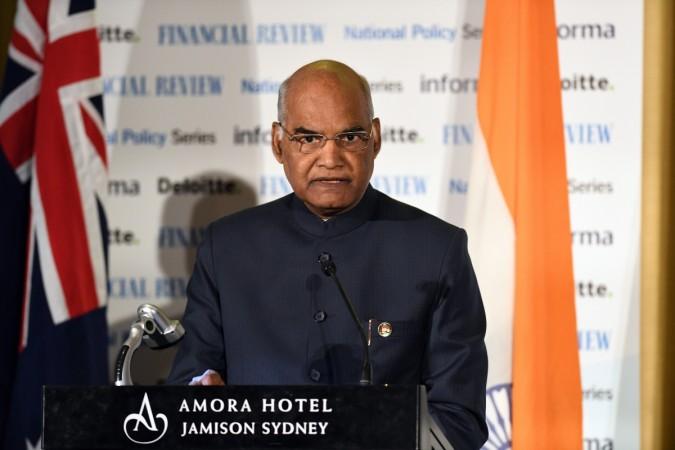President Ramnath Kovind has imposed the President's rule in Jammu and Kashmir under Article 356 of the Constitution of India. It was done after the expiry of six months of Governor's Rule on Wednesday.
A proclamation was issued by the President after he received a report from Governor Satyapal Malik, who had recommended for the President's rule as there is a rising tension of political crisis in the state.

As the coalition government had failed, Jammu and Kashmir was unable to form a government or elect a chief minister. The President will dissolve the state Assembly and all the major decisions and orders will be given by the central government.
There was a harsh political situation in Jammu and Kashmir after People's Democratic Party (PDP)-led coalition government headed by then Chief Minister Mehbooba Mufti collapsed in June.
Due to the rising tensions, then Governor NN Vohra had forwarded a report to President Ramnath Kovind for the imposition of Governor's rule under Section 92 of the Constitution of Jammu and Kashmir.
On August 21, NN Vohra was replaced and Satyapal Malik was appointed as the 13th Governor. The President's rule has been imposed in the state after long 22 years. The last time when the President's rule was applied to the state was in 1996.
Special status to the state
Jammu and Kashmir has a separate Constitution as Article 370 of the Indian Constitution grants autonomous status to the state. The article that was drafted in Part XXI of the Constitution was supposed to be a temporary solution.
Under Article 92 of the Jammu and Kashmir Constitution, six months of Governor's rule is compulsory in the state and all the legislative powers are vested with the Governor.
And if the state is unable to form a government by this period, the powers of the state legislature will be exercised by the Centre, directed by the President along with the council of ministers and the Prime Minister advising him.
What is Article 370?
Article 370 of the Indian Constitution was drafted by Sheikh Mohammed Abdullah in 1950. It is a special status given to Jammu and Kashmir by the Constitution of India.
In the matters with respect to Jammu and Kashmir, the central government's jurisdiction has limited access and the residual power is maintained by the state.
After India got independence from the British Empire, the partition of India took place and Pakistan became a separate country.
At the time of Independence, Maharaja Hari Singh, who was the ruler of the princely state of Jammu and Kashmir, which was in between India and Pakistan, did not pledge alliance or accession with either country.
On October 6, 1947, the Pakistani Muslim tribes, who were supported by the Pakistan government, attacked Jammu and Kashmir to forcefully conquer the state.
The Maharaja asked help from the Indian government, which asked for Instrument of Accession (IoA) to the country. Maharaja signed the IoA with India for help.
However, the IOA only gave limited authority to the government, only on the three subject matters of foreign affairs, defence and communications.
The government had signed many IoA's with several other states, which later merged with the Union of India, but the relations with Jammu and Kashmir was under special conditions, which called for the Article 370.
The accession of the state to India is still a matter of dispute between India and Pakistan, and still on the agenda of the United Nations (UN) Security Council.

















